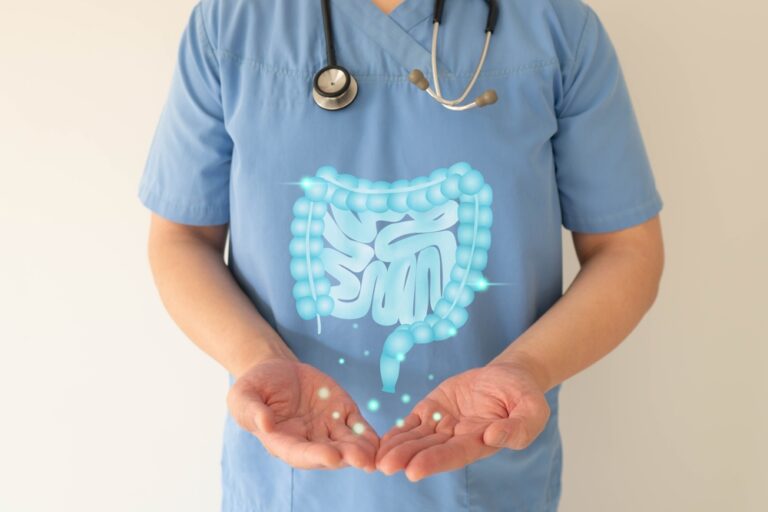
A colonoscopy is a potentially life-saving procedure, but many people feel more anxious about the preparation than the test itself. While the prep process requires some discipline, following the instructions carefully is the single most important factor for a successful exam. An incomplete prep can lead to a canceled procedure or, worse, a missed diagnosis.
This guide will walk you through each step of the process, from dietary changes to the recovery period. Understanding what to expect can help ease your concerns and ensure you are fully prepared for your colonoscopy, a critical tool in the prevention of colorectal cancer.
The entire purpose of a colonoscopy is for your doctor to get a clear, unobstructed view of the inner lining of your colon. If the colon is not completely clean, it’s like trying to inspect a room in the dark. Small polyps or other abnormalities can be easily hidden by leftover stool, making them invisible to the doctor and impossible to remove.
Following your preparation instructions exactly is essential for a thorough exam. Poor prep can lead to a longer procedure time, an increased risk of complications, or the need to repeat the entire process sooner than planned. A successful bowel cleansing ensures your doctor can perform an accurate screening and take a major step in preventing colorectal cancer.
Your preparation begins a few days before your colonoscopy. Most doctors will ask you to start a low-fiber diet 3 to 5 days before your procedure. Fiber is the part of plant foods that your body can’t digest, and it creates bulk in your stool. Reducing fiber intake makes the final bowel cleansing process much easier and more effective.
During this time, you should avoid foods like:
Instead, focus on low-residue foods such as white bread, white rice, pasta, lean meats like chicken or fish, and eggs. Always refer to the specific dietary guide provided with your prep instructions.
The day immediately before your colonoscopy, you will transition to a strict clear liquid diet. This means you cannot have any solid food. The goal is to give your digestive system a complete rest while keeping you hydrated. You are not allowed to eat or drink anything that is not transparent.
Acceptable clear liquids typically include:
It is crucial to stay hydrated throughout this day. Drinking plenty of fluids will not only prevent dehydration but also help with the bowel cleansing process.
This is the most challenging part for most people. The evening before your procedure, you will begin drinking a prescribed liquid laxative solution. Your doctor will provide detailed prep instructions, which may involve drinking a large volume of liquid over a few hours or a split-dose regimen where you drink half the prep the night before and the other half several hours before your appointment.
The solution is designed to trigger frequent, watery bowel movements to completely empty your colon. It’s best to stay home and close to a bathroom during this time. Some tips to make it more manageable include chilling the solution, drinking it through a straw, and rinsing your mouth with water after each glass. Follow the timing in your preparation instructions precisely.
It’s vital to discuss all your current medications and supplements with your doctor well in advance of your colonoscopy. Some medicines may need to be temporarily stopped or adjusted to ensure the safety and accuracy of the procedure.
In particular, you should consult your doctor about any blood thinners (such as warfarin, clopidogrel, or newer anticoagulants) or anti-inflammatory medications. These can increase the risk of bleeding if a polyp is removed. Your doctor also needs to be aware of any medications you are taking for diabetes, heart conditions, or high blood pressure. Do not stop taking any medications without first consulting your healthcare provider. If you have any questions about your medications, please call your doctor’s office.
For the colonoscopy itself, you will receive sedation or anesthesia to ensure you are comfortable and relaxed throughout the procedure. Most patients receive “conscious sedation,” which makes you drowsy and relaxed, and you are unlikely to remember the procedure afterward. You will be able to breathe on your own, and your vital signs will be monitored continuously.
The procedure typically takes 30 to 60 minutes. Your doctor will gently guide the colonoscope through your colon, examining the lining on a monitor. If polyps are found, they can usually be removed during the procedure. You will not feel any pain.
Once the procedure is over, you will be moved to a recovery area to rest as the sedative wears off. You may feel a bit bloated or have some mild cramping, which usually passes quickly. Your doctor will briefly discuss the initial findings with you, but you may not remember the details due to the anesthesia.
Because you received sedation, you will not be able to drive for the rest of the day. You must arrange for a trusted friend or family member to drive you home. Plan to take it easy for the remainder of the day—rest, relax, and rehydrate. You can typically resume your normal diet, but your doctor may suggest starting with a light meal.
While complications are rare, it is important to know what to watch for after your procedure. You should call the professionals at Allied Digestive Health or seek medical attention if you experience:
If you have any questions or concerns during your prep, don’t hesitate to reach out. Clear communication is essential to ensure your safety and a successful colonoscopy.
For Your Visit
© All Rights Reserved